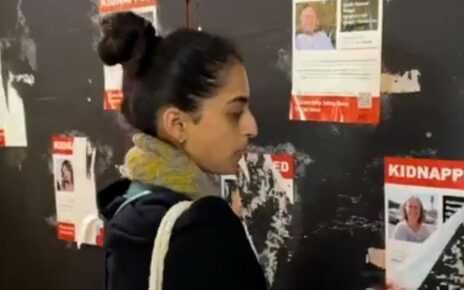Overnight workers face paying £12.50 ULEZ charge twice if shift goes past midnight, mayor of London is warned
- The union estimated that nearly 40,000 workers could be affected by the charge
Overnight workers face paying the £12.50 Ulez charge twice if their shift goes past midnight, nighttime industry bosses have warned.
The Night Time Industries Association (NTIA), which represents businesses that operate between 6pm and 6am, called on London Mayor Sadiq Khan to ‘rectify this assault on night time workers’.
The union estimated that nearly 40,000 workers who work past midnight may have to pay the Ulez charge to get both to and from work.
Non-compliant cars will be charged daily from midnight to midnight, so if a workers shift crosses over two days, they could be forced to pay a £25 to commute to work by car.
It comes as the controversial traffic calming scheme has been rolled out to all 32 London boroughs, meaning that those driving the most-polluting vehicles will have to pay a fee.
Overnight workers face paying the £12.50 Ulez charge twice if their shift goes past midnight, nighttime industry bosses have warned London Mayor Sadiq Khan
Michael Kill, the chief executive of NTIA, warned that nighttime industry workers face ‘a double whammy of charges’ when travelling to and from work
The controversial traffic calming scheme has been rolled out to all 32 London boroughs this week, meaning that those driving the most-polluting vehicles will have to pay a fee
Nighttime workers are more likely to need their cars to travel to and from work, as there is a reduction in public transport, such as tube connections, after midnight.
Michael Kill, the chief executive of NTIA, told the Telegraph: ‘The midnight threshold unfairly condemns countless night workers who are unable to afford compliant vehicles to a double whammy of charges as they diligently fulfil their duties during unconventional hours.
‘It also brings into question how many night workers are paying double when public transport is limited due to industrial action.’
A spokesperson for the NTIA also told the paper: ‘As a relentless advocate for the interests of businesses and communities, the NTIA demands an immediate and thorough reevaluation of these draconian measures. Collaboration with stakeholders across sectors is imperative to rectify this assault on workers, residents, and visitors alike.’
To comply with Ulez standards, petrol cars must generally have been first registered after 2005, while most diesel cars registered after September 2015 are also exempt from the charge.
It comes as the London Mayor has dropped his plans for a zero-emission vehicle zone in the centre of the capital.
The Labour mayor had etched out plans in his Transport Strategy in March 2018 to ‘deliver a zero-emission zone in central London from 2025’.
This would be expanded to inner London by 2040 and cover the whole city ‘by 2050 at the latest’.
The document also set out an ambition for ‘zero-emission zones in town centres from 2020’ but these plans have stalled.
A Transport for London spokeswoman said: ‘We have no plans at present to progress the introduction of new zero-emission zones.
To comply with Ulez standards, petrol cars must generally have been first registered after 2005, while most diesel cars registered after September 2015 are also exempt from the charge
Non-compliant cars will be charged daily from midnight to midnight, so if a workers shift crosses over two days, they could be forced to pay £25 on their commute
‘We remain focused on delivering plans to support the mayor’s target of a carbon neutral London by 2030, most recently celebrating the milestone of over 1,100 zero-emission buses operating in the capital, as well as the landmark Ulez (ultra-low emission zone) expansion to all London boroughs.
‘We continue to support boroughs who wish to implement local zero-emission zones in their local areas too.’
A spokesperson for the Mayor of London said: ‘London has made significant progress in recent years in improving air quality, but it sadly remains the case that around 4,000 Londoners die prematurely each year due to toxic air.
‘The Mayor recognises the importance of London’s night-time workers. Many will not drive to work and for those who do, nine out of ten cars seen driving in outer London on an average day meet the ULEZ standards meaning their drivers will not have to pay the charge.
‘To help those affected, mitigations including night bus and Tube services are in place and every Londoner with an eligible non-compliant car or motorcycle can now apply for the scrappage scheme, including shift workers who were previously ineligible for financial support.
‘The impact of the London-wide ULEZ on shift workers was covered in the independent Integrated Impact Assessment which the Mayor considered before making his decision.’
Source: Read Full Article







